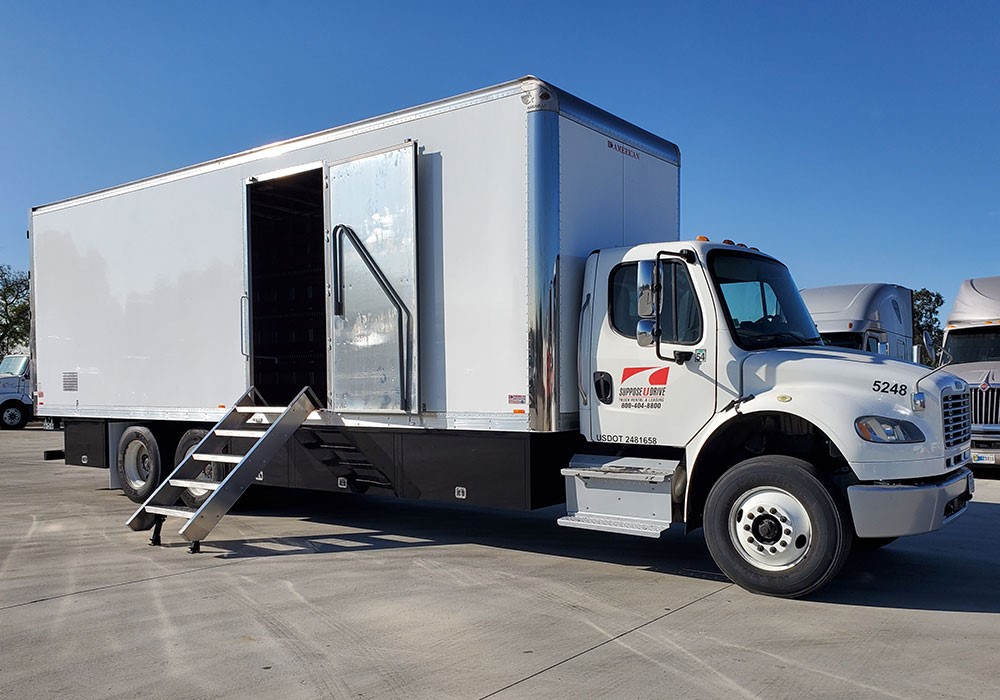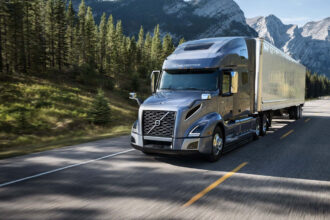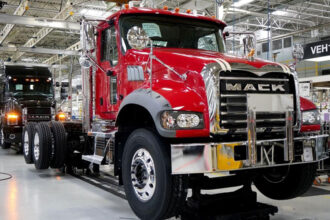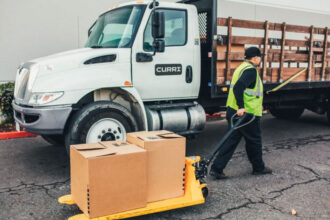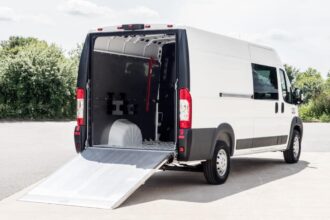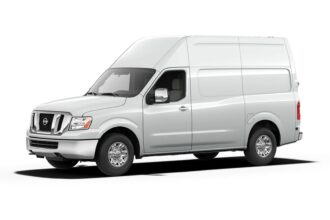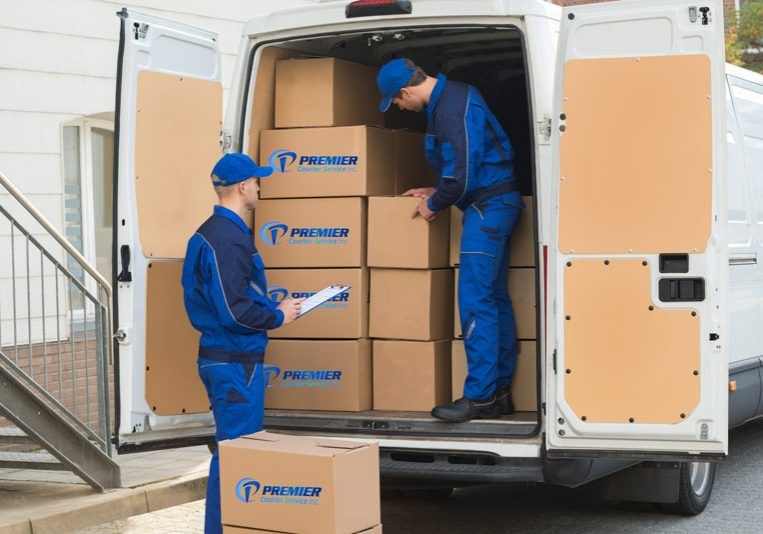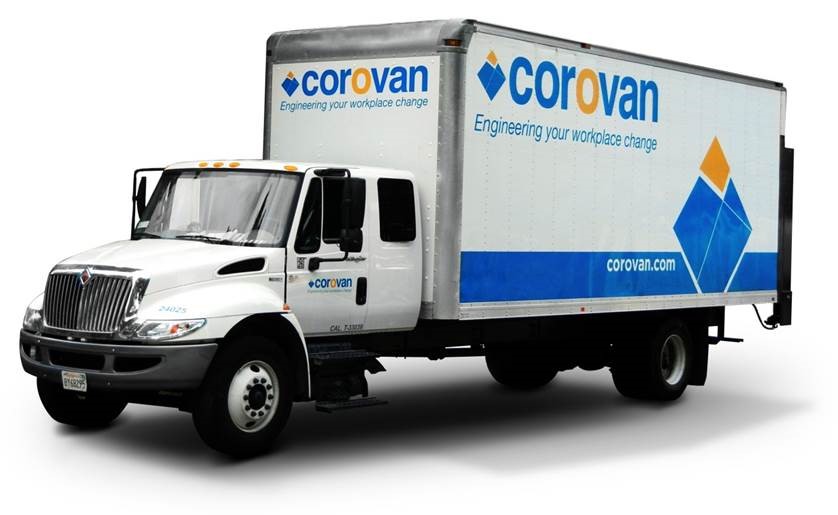Table of Contents
Introduction
Box trucks serve as indispensable assets for countless businesses, facilitating the movement of goods and commodities with ease. Their adaptable nature allows for various applications, from local deliveries to interstate transport. Yet, navigating the regulatory landscape surrounding box truck authority is essential to ensure your business operates within the bounds of the law.
If you’re contemplating the idea of launching a box truck business or currently managing one, It is extremely important to understand the concept of authority.
So before you embark on your box truck journey, you must address this pivotal query: “Do I need authority to operate these vehicles for commercial purposes”
This article delves into the intricacies of box truck authority, simplifying the process and equipping you with the vital knowledge necessary for successful box truck ownership.
So, Do you need authority for your box truck business? Read on to find out.
1. What is the authority for box trucks?
Authority for box trucks refers to the essential legal permissions and certifications you need to operate your box truck for commercial purposes. It’s the green light from the government that ensures you’re meeting all the necessary regulations and safety standards when using your box truck for business.
Now, breaking down what this means for you:
a. Motor Carrier Operating Authority (MC Number)
If your box truck weighs 26,001 pounds or more, or if it’s designed to transport 16 or more passengers, you likely need an MC number issued by the Federal Motor Carrier Safety Administration (FMCSA). This is crucial if you’re involved in interstate commerce, crossing state lines in your operations.
b. Intrastate Authority
In addition to federal regulations, some states have their own rules for box truck operations within state lines. It’s essential to check your state’s specific requirements to ensure compliance.
c. Specialized Permits
Depending on what you’re hauling, you may need specialized permits. For example, if you transport hazardous materials or oversized loads, there are specific regulations and permits you must follow.
In a nutshell, authority for box trucks is about following the rules and obtaining the right permits to legally operate your box truck for business. Ignoring these requirements can lead to legal troubles and business disruptions, so it’s crucial to get it right from the start. Compliance not only keeps you on the right side of the law but also contributes to road safety and the smooth flow of commercial transportation.
2. Why do I need authority?
The need for authority boils down to legal compliance, safety, and ensuring the smooth operation of your business.
Here’s why you should pay attention to this:
Safety
The government insists on authority for box trucks to ensure road safety. By enforcing this requirement, they can keep track of these commercial vehicles and conduct necessary inspections to verify their safety, protecting both drivers and the public.
Insurance
Most commercial insurance companies will ask for your authority before providing coverage. This step is to confirm the legitimacy of your carrier operation and to ensure you’re committed to operating safely. Having the right insurance coverage is crucial for your protection and the security of your cargo.
Taxes
Carriers with authority are obligated to pay specific taxes like fuel taxes and highway use taxes. These taxes play a vital role in financing the maintenance and construction of the roads and highways you rely on for your transportation business. In other words, they help keep the infrastructure in good shape for your safe and efficient operations.
Operating a box truck for commercial purposes without authority is illegal and can result in fines and truck impoundment. In some cases, the authorities could criminally charge you.
Here are some examples of when you would need authority for your box truck:
- You are a moving company and you use your box truck to transport customers’ belongings.
- You are a delivery company and you use your box truck to deliver goods to businesses and individuals.
- You are a contractor and you use your box truck to transport tools and materials to job sites.
- You are a farmer and you use your box truck to transport your products to market.
- You are a tour operator and you use your box truck to transport tourists to different attractions.
If you are unsure whether or not you need authority for your box truck, you can contact the FMCSA for more information.
How do I get authority?
To get authority for your box truck, you need to apply to the Federal Motor Carrier Safety Administration (FMCSA). The application process is relatively straightforward, but there are a few things you need to do before you apply:
1. Register your business with your state.
2. Get a USDOT number.
3. File a BOC-3 form.
4. Get commercial liability insurance.
5. Pay the application fee.
1. Register your business with your state.
To obtain authority for your box truck, begin by formally registering your business with the appropriate state authorities. This step establishes your business entity and is often a prerequisite for obtaining authority.
2. Get a USDOT number.
To acquire authority for your box truck, get a USDOT (United States Department of Transportation) number. This unique identifier is crucial for tracking your vehicle’s safety and regulatory compliance. You can apply for a USDOT number online through the FMCSA.
3. File a BOC-3 form.
To get authority for your box truck, fill out a BOC-3 (Designation of Process Agents) form. This form designates agents within each state where you operate to accept legal documents on your behalf. Process service is a necessary part of the legal process, you can typically file through a process service company.
4. Get commercial liability insurance.
To secure authority for your box truck, ensure you have commercial liability insurance coverage in place for your box truck operations. Many insurance companies require proof of authority before providing coverage. This insurance is essential for protecting your business and complying with regulatory requirements.
>>>GET SMARTER: USDOT and MC Number Application: Checklist to Follow
5. Pay the application fee.
To gain authority for your box truck, be ready to make a payment of $300 as an application fee when you submit your application to the FMCSA. This fee covers the cost of processing your application.
Once you have all the required documentation, you can apply for authority online or by mail. You can find the application forms on the FMCSA website.
The FMCSA reviews your application and either approve it or deny it. If your application gets approved, you receive a motor carrier operating authority certificate. This certificate allows you to operate your box truck for commercial purposes in the states in which you have authority.
Here are some additional tips for getting authority for your box truck:
- Make sure that you have all of the required documentation before you apply. This helps to ensure that your application is processed quickly and efficiently.
- Review the FMCSA website for more information about the application process and the requirements for authority.
- If you have any questions, you can contact the FMCSA for assistance.
Once you have authority for your box truck, you need to keep it up to date. You need to renew your authority every two years. You also need to notify the FMCSA of any changes to your business, such as a change of address or a change in insurance providers.
Recap
In Box truck operations, obtaining authority is essential for legal compliance and safe commercial endeavors. Box trucks, versatile workhorses for businesses, can serve various purposes, from local deliveries to interstate hauls. To address the critical question of whether you need authority for your box truck, this article breaks down the intricacies of the process.
Authority for box trucks primarily involves obtaining legal permissions and certifications. It includes the Motor Carrier Operating Authority (MC Number) for interstate commerce, intrastate authority for operations within your state, and specialized permits for specific cargo types. The need for authority stems from the imperative of adhering to government regulations, ensuring road safety, meeting insurance requirements, and contributing to infrastructure through taxes.
This guide also outlines a step-by-step process to obtain authority: business registration, securing a USDOT number, filing a BOC-3 form, obtaining commercial liability insurance, and paying the application fee while stressing the importance of timely renewals and updates to maintain authority. In summary, authority is the cornerstone of a successful and legal box truck business, ensuring compliance, safety, and operational integrity.


